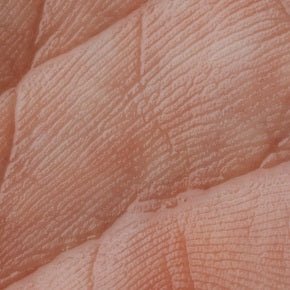The skin is the largest organ in the body but are we doing all we can to keep it healthy? This week’s Nutrition News looks at some of the latest research illustrating the role nutrition can play in skin health.
Find out more here.
Vitamin E and skin health
Vitamin E contributes to the protection of cells from oxidative stress; because of this, it is known to have a role in skin health and has even been researched for its potential in supporting certain skin conditions.
This article by Medical News Today explores the antioxidant and anti-inflammatory effects of vitamin E and its role in skin health. Research reported by the publication suggests that these properties could relieve some of the symptoms of eczema, which is a chronic inflammatory condition that manifests itself as dry, itchy skin.
It’s thought that eczema is the result of skin barrier dysfunction, where faults in the connections between the skin’s cells allow microbes, chemicals and other irritants to absorb deep into the skin. The immune system then overreacts to these substances by releasing reactive oxygen molecules and causing excess inflammation, taking the form of discolouration, swelling and irritation of the skin.
Vitamin E limits the formation of reactive oxygen molecules and therefore decreases symptoms of inflammation.
Dietary sources of vitamin E include seeds, nuts, vegetable oils, and leafy greens, although it is important to consult a healthcare practitioner over any dietary changes you make as some people find that certain foods trigger eczema symptoms.
The difference between vitamin D2 and D3
We may know that we need vitamin D to stay healthy, as it is an essential vitamin, but it is less common knowledge that there are two types of vitamin D and recent research, as published by Science Daily, suggests that one offers greater health benefits than the other.
The study by the Universities of Surrey and Brighton found a considerable lack of impact of vitamin D2 on human health whilst vitamin D3 showed support in balancing the immune system and strengthening defences against viral infections. The study involved participants supplementing daily with either vitamin D2 or D3 over a 12 week period and measuring the activity of genes within their blood.
Speaking of the research and the subsequent findings, Professor Colin Smith, lead-author of the study, said, “We have shown that vitamin D3 appears to stimulate the type I interferon signalling system in the body -- a key part of the immune system that provides a first line of defence against bacteria and viruses. Thus, a healthy vitamin D3 status may help prevent viruses and bacteria from gaining a foothold in the body.”
Vitamin D3 is primarily secured through the skin’s exposure to sunlight, whereas vitamin D2 can be found in some plants and fungi. Vitamin D3 deficiency is particularly prevalent in countries like the UK where exposure to natural sunlight is limited, especially during the winter months.
Turmeric could boost blood flow to the brain
A recent study from Brazil that involved a small double-blind, placebo-controlled, crossover trial with older men and women found that turmeric extract could increase magnitudes of cerebral oxygenated haemoglobin (O2Hb) and have a positive effect on brain health.
The study, which was reported by NutraIngredients, found that, when compared to a placebo, the single high dose of curcumin from turmeric significantly improved cerebral hemodynamic during brain activation by exercise in older participants. The researchers noted a 42% increase in cerebral oxygenation after curcumin supplementation and a 54% increase in blood volume, which was measured as total haemoglobin (tHb), when compared to the placebo. These findings add to the increasing list of prospective health benefits of turmeric.
Despite the promising findings, it is worth noting the small study size of this research and the authors’ caution regarding extrapolating the findings to specific health benefits. While further research is needed, it is a promising result from which to base further research.
Share your thoughts
Agree with the findings in this week’s Nutrition News? Share your thoughts with us on Facebook and Twitter.
 Alison is the Founder of Metabolics who writes about Metabolics updates, events and natural healthcare. Her experience and passion for natural supplements and healthcare comes from her years of experience as a practising osteopath, having founded Metabolics in her search for high quality, natural products in her own work. Alison has been a qualified and practising Osteopath since 1981 and regularly gives seminars on a range of healthcare subjects to the wider practitioner community helping share her knowledge and experience.
Alison is the Founder of Metabolics who writes about Metabolics updates, events and natural healthcare. Her experience and passion for natural supplements and healthcare comes from her years of experience as a practising osteopath, having founded Metabolics in her search for high quality, natural products in her own work. Alison has been a qualified and practising Osteopath since 1981 and regularly gives seminars on a range of healthcare subjects to the wider practitioner community helping share her knowledge and experience.




